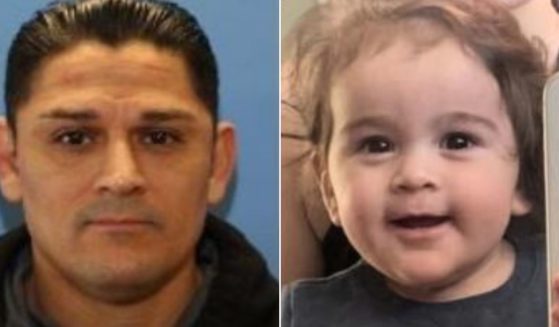Doctors Say Autistic Daughter Won't Amount to Anything. Thankfully, She Didn't Listen
Every expecting parent wants a healthy child. Every new parent can’t help but excitedly gush about every achievement — big and small — their children have accomplished.
Gina Gallagher of Marlborough, Massachusetts, wanted the same for her daughter Katie. Admittedly quirky from the start, it wasn’t until Katie started school that the loving family got some seemingly life-shattering news.
Katie hadn’t gotten through the first week of kindergarten before teachers were writing home saying that Katie was behind and should be tested. By 7, Katie was diagnosed with Asperger’s Syndrome, now better understood as High-Functioning Autism.
Katie had a distinctive tic: flapping her hands. Tics are understood as an attempt to self-soothe and are largely involuntary.
By 3rd grade, peers began to pick on Katie for her differences and Katie began to notice that she was different than her peers.
She was also struggling in school. When Gina took her to doctors and specialists, they were not encouraging. They told Gina that Katie would never drive, finish high school, leave home, go to college, get married, or have a successful career — you know, all the things that a parent hopes for their child.
Doctors don’t do this to be mean — they see it as a way of preparing the family for the road ahead. Back then, Asperger’s Syndrome wasn’t well known or understood; the assumption was that these people wouldn’t amount to anything.
Children diagnosed as being on the Autism spectrum often face these grim predictions for their future. Because the cause is unknown, the symptoms are expansive, and an inability to “properly” socialize is a main hallmark of the condition, it’s been easier to lump them in with other developmental disabilities who, in fact, have significant deficits in cognitive, motor, and sometimes social abilities.
As a parent, no matter how much you love your perfect child, this sort of news is depressing and demoralizing. Gina admits that she spent many years mourning the diagnosis and worried about the future her daughter could achieve.
Gina received a scholarship to Willow Hill School, a private school specializing in giving extra support to motivated students with special needs. “It became not about what she can’t do but about what she can do,” Gina explained.
Katie began to flourish. She played sports, took interest in theater, made friends and even had a few boyfriends — things her medical team thought were outside her capabilities.
As Katie began to succeed, tensions in the Gallagher home began to subside. Even in the most loving environments, a child with special needs in conjunction with a Negative Nancy medical team builds anxieties that strain relationships across the entire family unit.
Katie proved the experts wrong when she graduated from high school in 2013, right on time. She’d even been accepted to Banacos Academic Center at Massachusetts’ Westfield State University.
The program is designed to help those with documented learning disabilities, but has the same curriculum requirements as those attending Westfield State University. The acceptance would require Katie to go away to college — another assumed impossibility.
Gina, perhaps still concerned about the expert’s predictions, didn’t think that Katie was ready. She wanted Katie to get her driver’s license and commute.
It was time for Katie to advocate for herself. “You got to go away to college. Why can’t I go away to college too,” Katie reasoned — and won.
Katie just finished her last class towards her BA in Communications. Her ceremony is scheduled for February.
A deficit in social abilities and communication skills is what most people think of when they hear of Autism. I think it’s astounding (and a tad ironic) that the persevering young lady now has a degree in what is supposed to be her weakness.
Katie is 22, drives, has held down a job for two years, and will graduate at an earlier age than today’s higher education average. Her message to students like her is, “Never give up. Never, ever give up.”
Gina proudly shares her daughter’s success in an effort to give hope to other parents given bleak prognoses for their children. “I needed someone back then to tell me this was possible, and no one was telling me that,” she told Today.
“Special needs parents spend so much time looking ahead at all the questions for their children’s futures,” she added. “One of the biggest mistakes they make is that they forget to look back at how far they have already come.”
Doctors and medical specialists are trained in statistical outcomes of various conditions. However, as Gina pointed out, they cannot know “your child’s heart or their perseverance.”
As more is discovered about this condition, we are beginning to understand that Autism is not a debilitating sentence. Having worked extensively with people with Autism and other special needs, I have seen outstanding stories like Katie’s and know that people with Autism can lead normal — and inspiring — lives.
Truth and Accuracy
We are committed to truth and accuracy in all of our journalism. Read our editorial standards.











